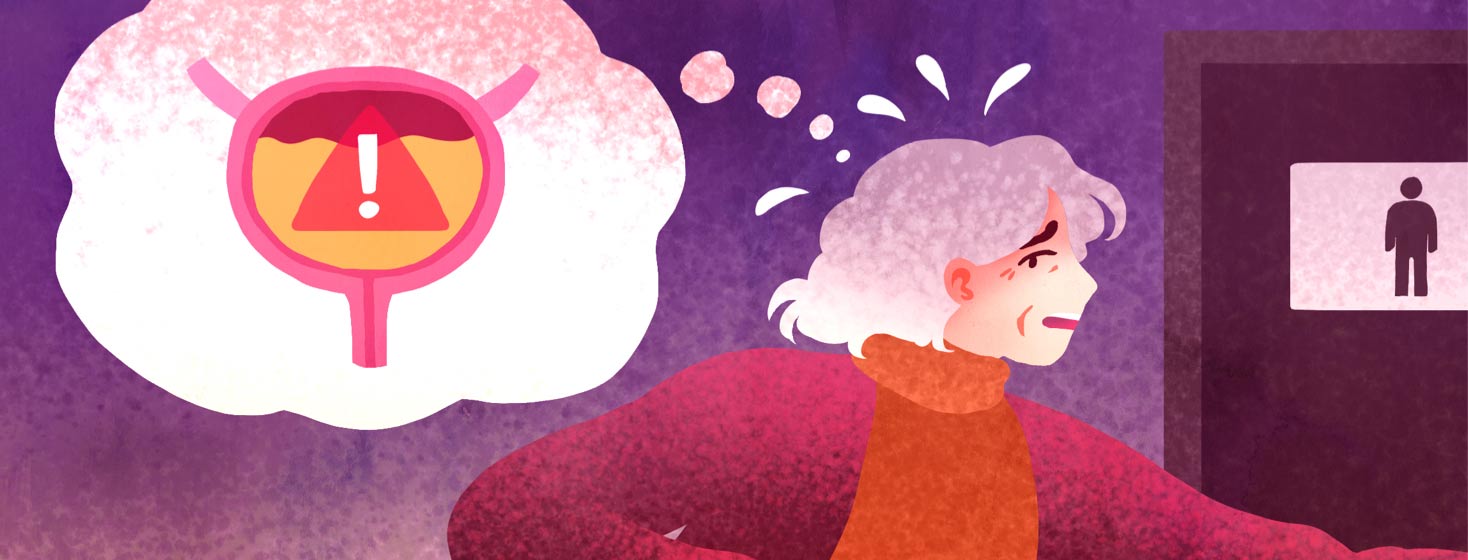Bladder Problems and Myasthenia Gravis
Myasthenia gravis (MG) is an autoimmune disease that causes weakened muscles. With MG, the nerves are not able to communicate with muscles well. MG can affect people at any age. And every person experiences the disease differently.1,2
Which muscles become weakened and the extent of the weakness is different for everyone. The muscles most often affected are those of the:1,2
- Eyes
- Face
- Arms
- Legs
- Throat
- Lungs
People with MG report having symptoms of the lower urinary tract, like an overactive bladder and incontinence. While research is limited, there may be a connection between MG and bladder problems.1,2
Bladder anatomy
The bladder is a hollow organ that stores urine. It is part of the urinary tract.3,43,4
Common urinary symptoms in MG
Research on the link between bladder problems and MG is limited. Some small studies have found that bladder problems are common in people with MG. The most common urinary symptoms are:2,5,6
- Nocturia, or getting up at night to urinate
- Incontinence, or loss of bladder control
- Urgency
- Difficulty emptying the bladder
- A feeling like the bladder is not empty
This or That
Have you ever experienced bladder problems with MG?
It appears people with MG have more problems with overactive bladder than the general population. Daytime frequency is the most common issue.2
Bladder problems in late-onset MG
Urinary symptoms seem to occur more in people with late-onset MG (MG that begins after age 50). These symptoms also last longer in those with late-onset MG. Waking up to go to the bathroom is more common in people who have late-onset MG.5
Does acetylcholine play a role?
Acetylcholine is a messenger between nerves and muscles. It is a chemical that helps muscles contract. Some people who have MG make an abnormal protein called acetylcholine receptor antibody. In 1 small study, people without these antibodies had bladder problems for a longer period of time.5,7
Possible connection to pyridostigmine
People living with MG have more bothersome symptoms of an overactive bladder. That could be linked to a commonly used drug. Many people with MG take the drug pyridostigmine.6,8
Pyridostigmine is used to help decrease muscle weakness. One of the drug’s side effects is an increased need to urinate. Scientists suggest overactive bladder symptoms are related to higher doses of pyridostigmine. Reducing the dosage of this drug may help reduce overactive bladder symptoms.6,8
Quality of life issue
Bladder symptoms can get worse with disease progression. People living with MG and bladder problems report a lower quality of life. Problems can include:2
- Incontinence
- Interrupted sleep
- Feeling the need to urinate often
Are there any treatments?
Talk to your doctor if you have bladder problems. A combination of treatments may help relieve overactive bladder symptoms. Behavioral therapies can help your symptoms without side effects. Behavioral therapies that help with bladder problems include:9
- Pelvic floor exercises
- Maintaining a healthy weight
- Biofeedback
- Scheduling bathroom breaks
- Wearing absorbent pads


Join the conversation